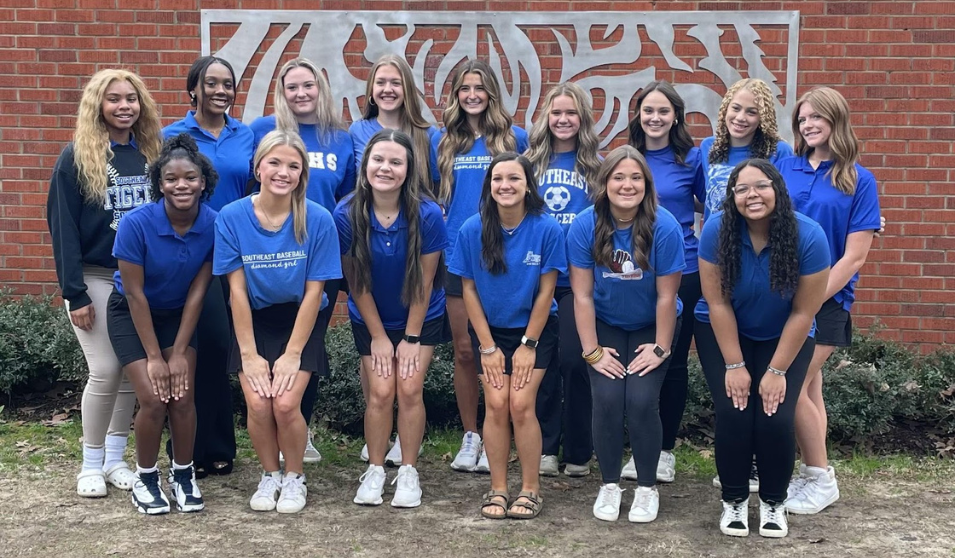As part of the national GRAD Partnership for Student Success, Rural Schools Collaborative is supporting 20 schools who are implementing student success systems in a rural cohort. This feature is supported by RSC’s Black Belt Regional Hub partners at The University of West Alabama. Read more about RSC’s GRAD Partnership project here.
Southeast Lauderdale High School was named a GRAD Partnership for Student Success national Spotlight School - read the press release about this honor here.
A Sense of Place: Southeast Lauderdale High School
Nestled outside Meridian, MS, near the Alabama and Mississippi border, Southeast Lauderdale carries a strong sense of community and looking out for one another - a hallmark of many rural places. With about 395 students (the majority of whom are on free-or-reduced lunches) this incredible high school is located about 20 minutes outside of town, serving a wide geography of rural students:
“It’s a very rural area - most bus routes take about an hour, but there's one route that's about an hour and a half long. Mr. Willie [a bus driver] is a saint. I tell him every day, I just love to see him show up to work every day smiling - that man does not mind driving that long route twice a day.” says Southeast Lauderdale Vice-Principal, Kameron Burnham.
“The number of students on the bus is not that high, but the distance between them is pretty significant,” adds Robbi Cooper, Southeast Lauderdale’s new Graduation Coach.
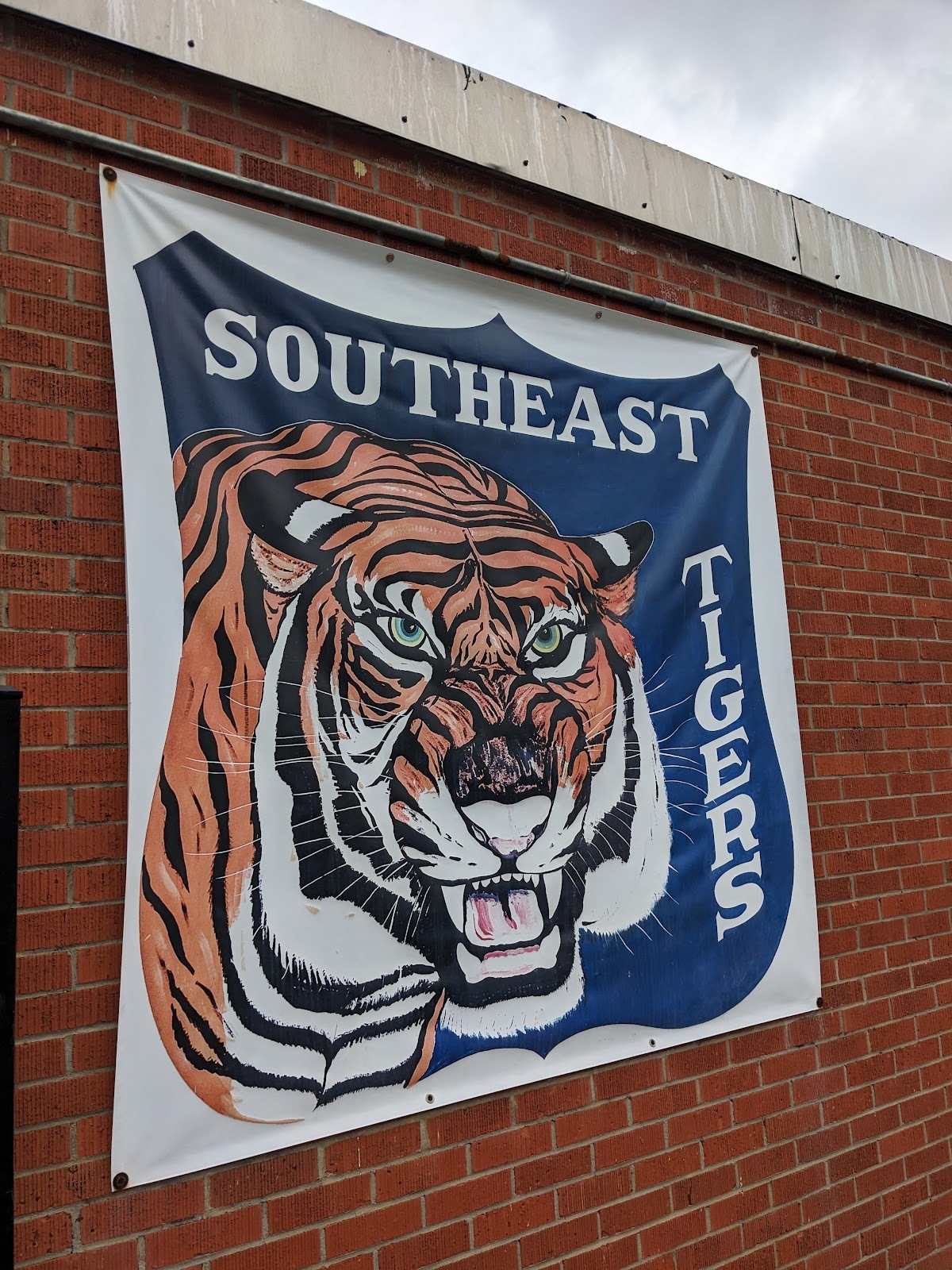
And getting kids to school is a key focus - Southeast Lauderdale has done a stellar job of raising their overall Mississippi Accountability Score from a “C” in 2021 to a “B” in 2022 (and are of course striving for an “A” this coming year). But challenges with chronic absenteeism remain, as is the case for many schools in the wake of the pandemic.
Every staff member, from the Resource Officer to the Principals, are chipping in to make attendance one less barrier for their students - from riding along on the Special Education bus routes, or getting in the car to pick up a nearby student who missed their ride to school.
With recent ESSER funds, the district is also supporting a new position this year, a Graduation Coach, who takes a point on data, interventions, and strategies for student success.
Southeast could not have found a better candidate than Robbi Cooper. Robbi has been a counselor, teacher, and coach in several area schools, and also served as the former middle school counselor at Southeast. This gives her a unique relationship with the students she supported through middle school who are now in high school on the path to graduation. (And, her background in coaching means when she sets her eyes on a goal, she will work her tail off ‘till she succeeds.)
Student Success: It Takes a Village
Robbi’s work as Graduation Coach is complemented by a building full of caring adults. The core strategy team includes seven adults - teachers, coaches, counselors and principals. Using a student social emotional survey to inform their focus, Robbi explains “We gained insight into their internal struggles, and how they truly feel about school, themselves, and life in general. We will be able to see if there is improvement by having students fill out the survey twice a year.”
With the results of the student survey in hand, their knowledge about their students, and leaning on the research-driven Student Success Systems framework, the SEHS decided to focus on relationships and school connectedness - fundamental pillars for post-secondary success. By creating activities at school that students enjoy, students are more likely to attend regularly - and attending regularly is a key factor in course performance.
And, anecdotal “street data” is also easily accessible at small schools - also known as, those direct chats and observations with students. During a site visit, several SEHS students were frank about their priorities “If I didn’t have basketball, I wouldn’t come to school”. As is the case in many small schools, having the football and basketball coaches involved in the student success team is a huge win.
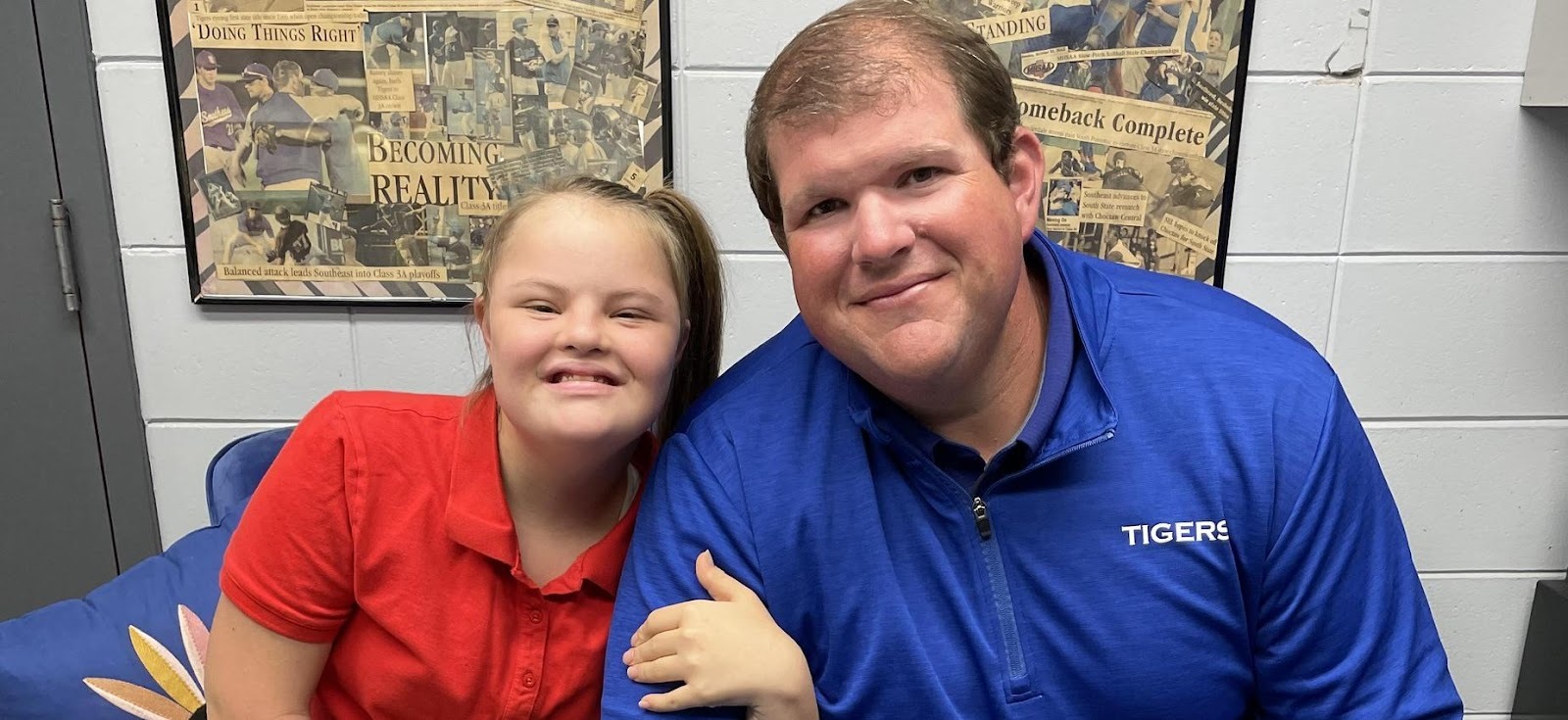
“A lot of people say, ‘oh well they're just coaches’ or ‘it's just sports’. But sports is such an integral part of everything that goes on at school,” says Coach Wade Pierce, who oversees the football team and sits on the success committee. “For a lot of these kids, if it wasn't for sports, they may not be at school. That's the only reason I came to school… And of course now I'm a teacher and a coach!
“Coach Pierce does a great job with our kids - he's had to be very, very patient, very, very forgiving, and have a lot of grace,” says Robbi, “And not everyone’s a football candidate, but that’s why there is a committee. Our committee consists of teachers, a counselor, our administrators, and our eSports coach.”
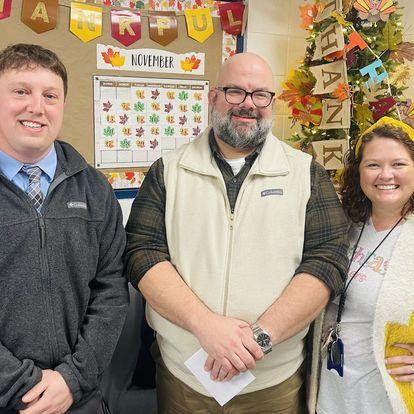
Kenny Watson is another student success committee member. He teaches law and public safety classes that help prepare students for local careers like an EMT, police officer, or firefighting. (Did we mention that Kenny just so happened to be named 2023 Mississippi Rural Teacher of the Year, too?). Kenny says, “One of the main things that you can do is find things the kids are passionate about - that's what's going to garner the most engagement. A lot of times they don't realize they're passionate about something until you show them that there's something to be passionate about. “
School Connectedness? Let’s Get Creative
So, for their GRAD partnership program, the team created intentional steps to assist all of their students to be involved in a school activity. Their method is one that any school could replicate - a shared google spreadsheet.
Robbi listed all the high school students on the spreadsheet, and sent it around to the school staff to weigh in on which students were connected to which activities - from Football, Cheer, CTE clubs, and beyond. The team found that 40% of their students were not involved in any activities beyond required courses.
Focusing on those unconnected students, the team went on a mission to find a place for each of those folks at school.
Robbi explained, “We had several students request a color guard team. After surveying the students and seeing their interest, we had a teacher step forward and agree to coach the team. Since then, we have grown to 10 girls, all of whom were not connected to anything before. They participated in the last few football games, the Veterans program, and were in the local Christmas parade.”
But of course, not all students are athletes, nor do all students have access to transportation to enable participation in afterschool activities. The team asked themselves, what can we do if activities that are currently offered do not meet every individual student's needs or interests?
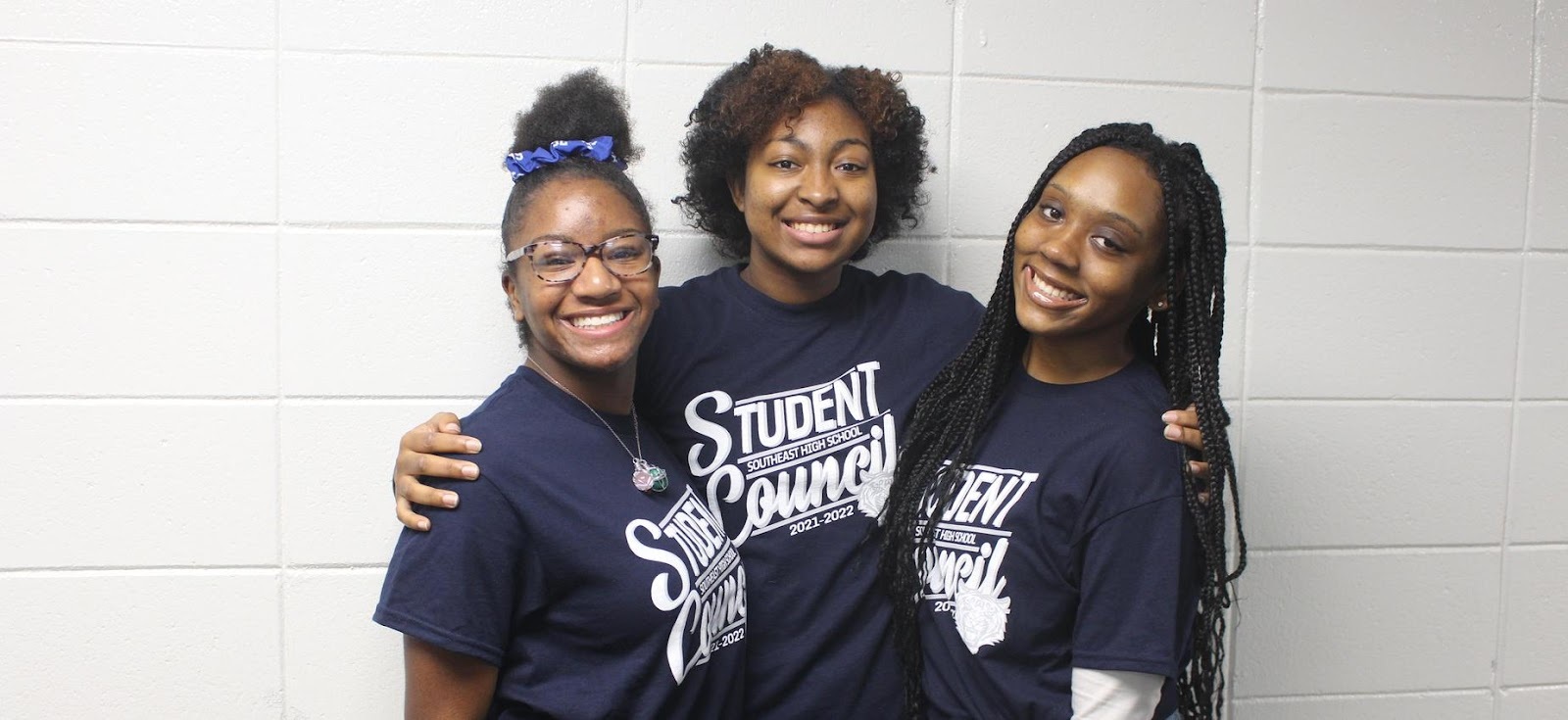
They got creative, they launched a new Diamond Girls club to support the baseball team. When a student was uninterested in sports, but interested in technology, they now use their drone to film the football games and practices.
The SEHS team also relies on their student-leaders for peer-to-peer connections. Students invite new kids to join clubs they are involved in, or volunteer to peer tutor others who are struggling with courses.
Student Impact: A Place to Belong
During a site visit, three SEHS students shared their perspectives on their new school involvement activities:
Jamyreon
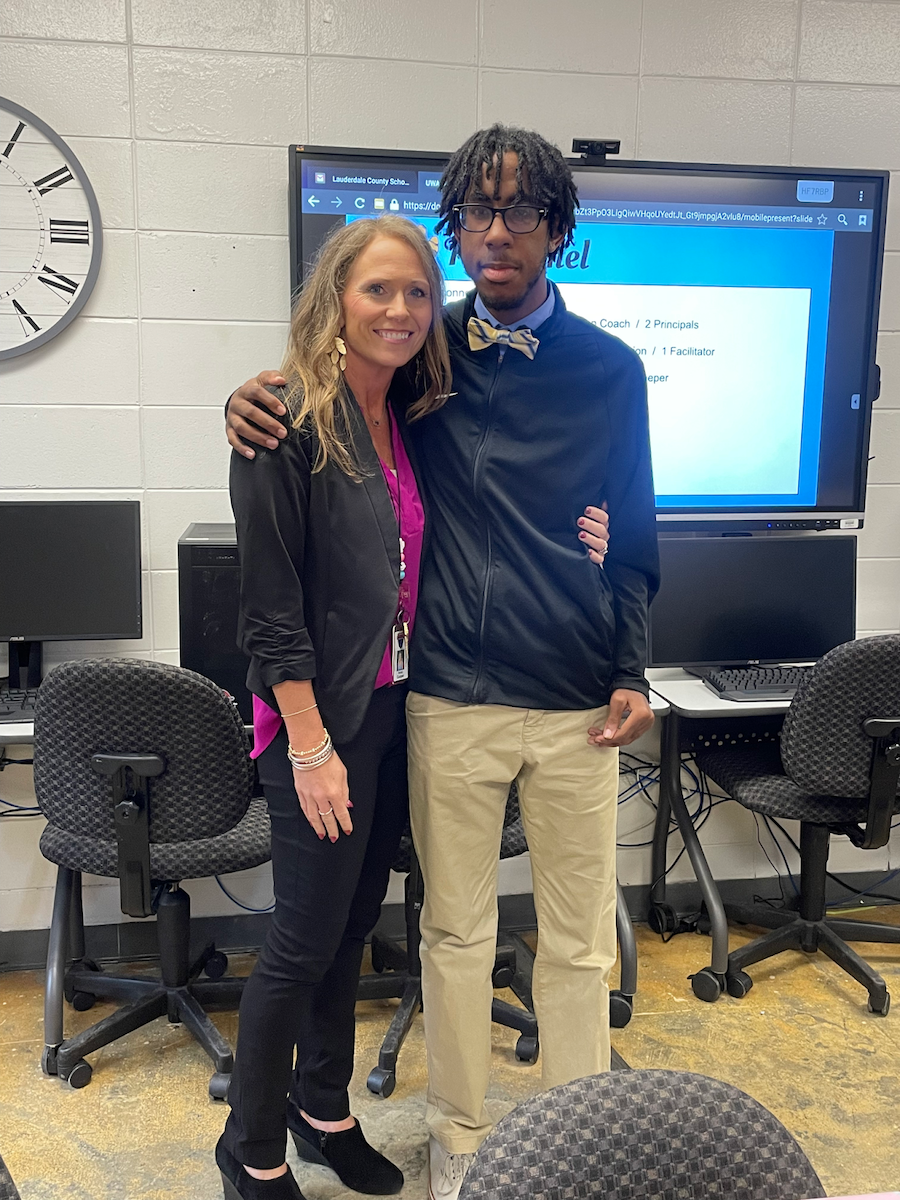
One 10th grade student, Jamyreon, has a strong passion for basketball, but is physically unable to join the team. But when you’ve got the coach on your student success team, you find a way. Jamyreon is now the SEHS’ basketball manager, using his videography skills to film all of the games. He travels with the team, dresses up on game days, and reviews the game footage with the team. His teachers have seen improvement in his school work and participation in the classroom. As for the basketball coach and team, they find Jamyreon is essential.
“Coach Truman [basketball coach] relies on you a lot, doesn’t he? Tell us all that you do for coach.” said Robbi.
“Everything,” laughs Jamyreon.
“What does basketball mean to you? Would you like to come to school and just do your work and go home without basketball?” asks Robbi.
“No.”
<laugh> “Quickest answer we've had all day!” says Robbi.
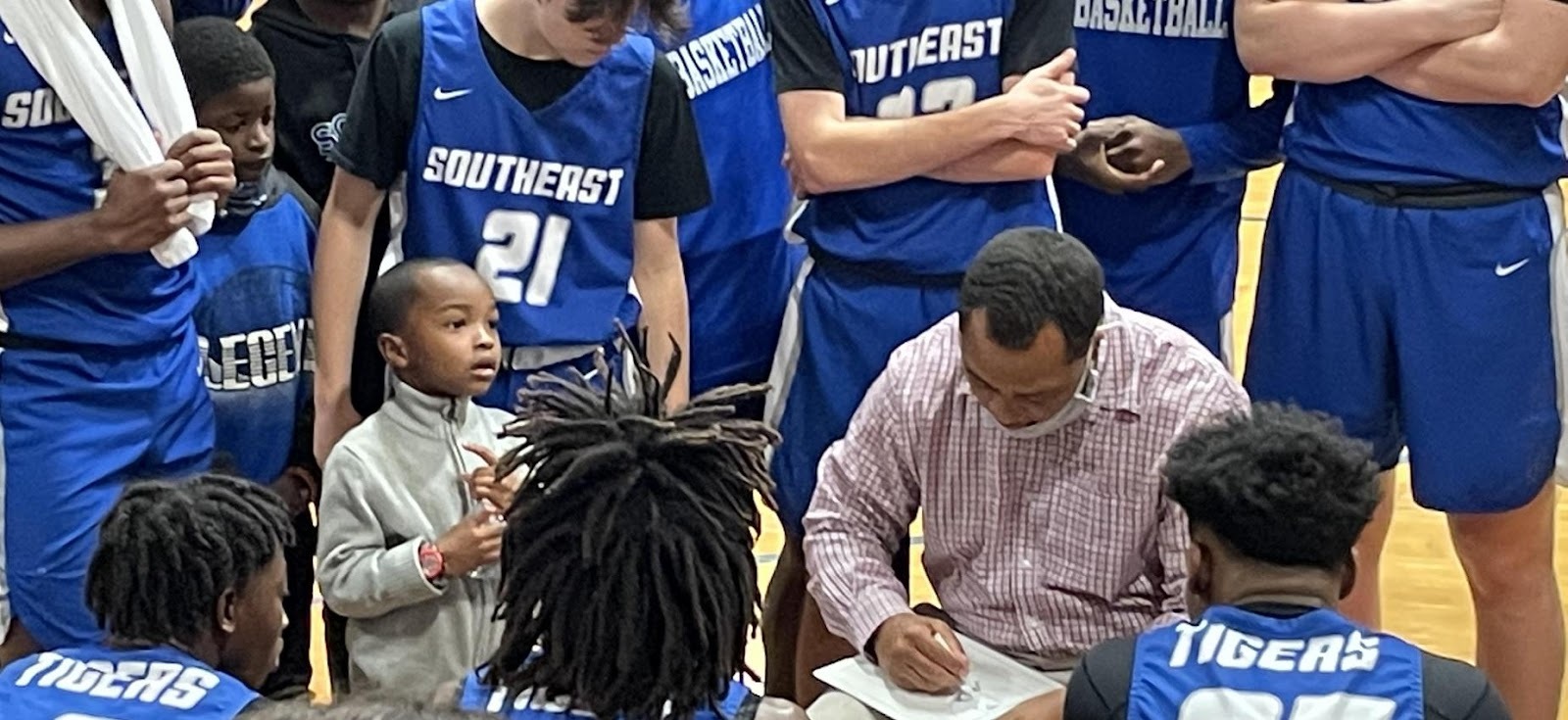
Raegan
One 9th grade student, Raegan, shared her experience as a new-comer to Southeast Lauderdale High School this year:
“This is my first year here in Mississippi. I'm from a retired military family, so we moved around a lot. Coming into Southeast, I didn't have any clubs or anything I was a part of. And then Ms. Lenox, my color guard instructor, she was going around talking to students, seeing if they want to join color guard. So I took the initiative to join, and color guard has helped me so much to come out of my shell. I'm a pretty shy person, but Ms. Lenox has helped me become a part of a group for something that's bigger than me.”
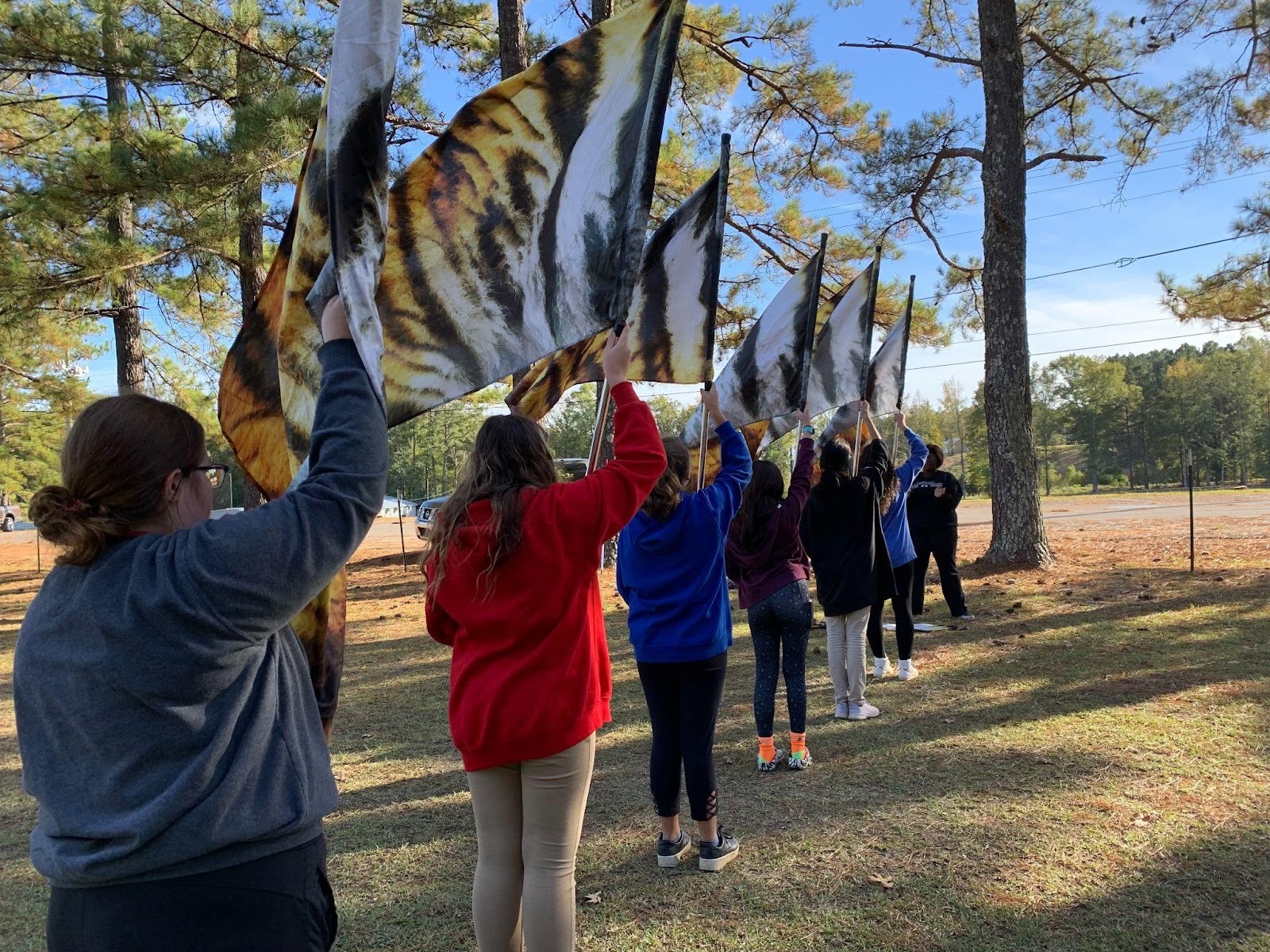
Jamari
Another 10th grade student, Jamari, doesn’t play sports and wasn’t connected at school, so the student success team created a role just for him - Jamari became an office aid to help the school leaders.
Robbi asks, “Jamari, what's your favorite part of your day?”
“When I get to go be in the office,” he says.
Jamari knows his office shifts are only able to take place once his work is completed.
“I now actually complete my work to the best of my ability… I did not before, if I completed it at all.” he says.
When asked about what type of tasks he does, Jamari said, “I come to the office to help when they need help. I try to help them out as much as they can, because I appreciate how much they do for us. I help them do the announcements, I keep stuff up, help do the route on the bus, or keep the keys in order.”
“He takes care of us, and we take care of him. We love him. All right, buddy, I’m going to let you get back to class.” says Robbi.
Early Celebrations and Next Steps
Through the utilization of staff and student leaders, students have already begun to engage in additional opportunities, and the caring adult team continues to find new involvement areas. From a year ago when the google spreadsheet showed 60% of students connected to school, SEHS now has more than 88% of students connected (and counting)!
And, even beyond the data for this project, the team at SEHS take belonging and school (and community) connectedness to heart, beyond graduation and into students’ post-secondary success. As the leadership team reflects on getting some of their students needing additional accommodations connected at school, they hope they’ll be able to keep working with them:
“When they graduate high school, I’m trying to convince them to come back here and be a bus driver for me,” says the Vice-Principal, Ms. Burnham.
“We’d love to have them back, if we can get them. They are family - they know they are safe here,” says Robbi.
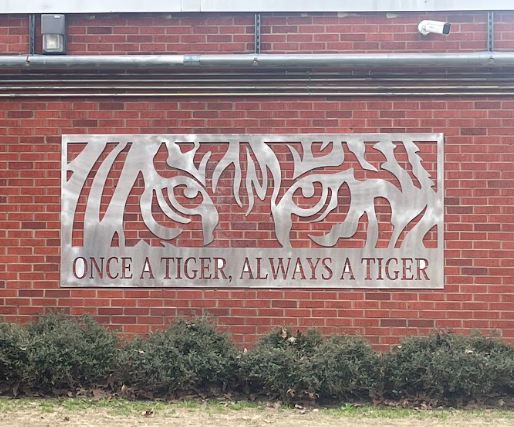
Thank you to the Southeast Lauderdale High School team for sharing their story, and special thanks toThe University of West Alabama, who is serving as an intermediary for the 10 schools in the Black Belt rural school cohort through the GRAD Partnership for Student Success. Learn more about the GRAD Partnership and RSC’s Rural Cohort Pilot Schools in the Black Belt and Northern California.

